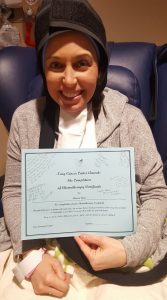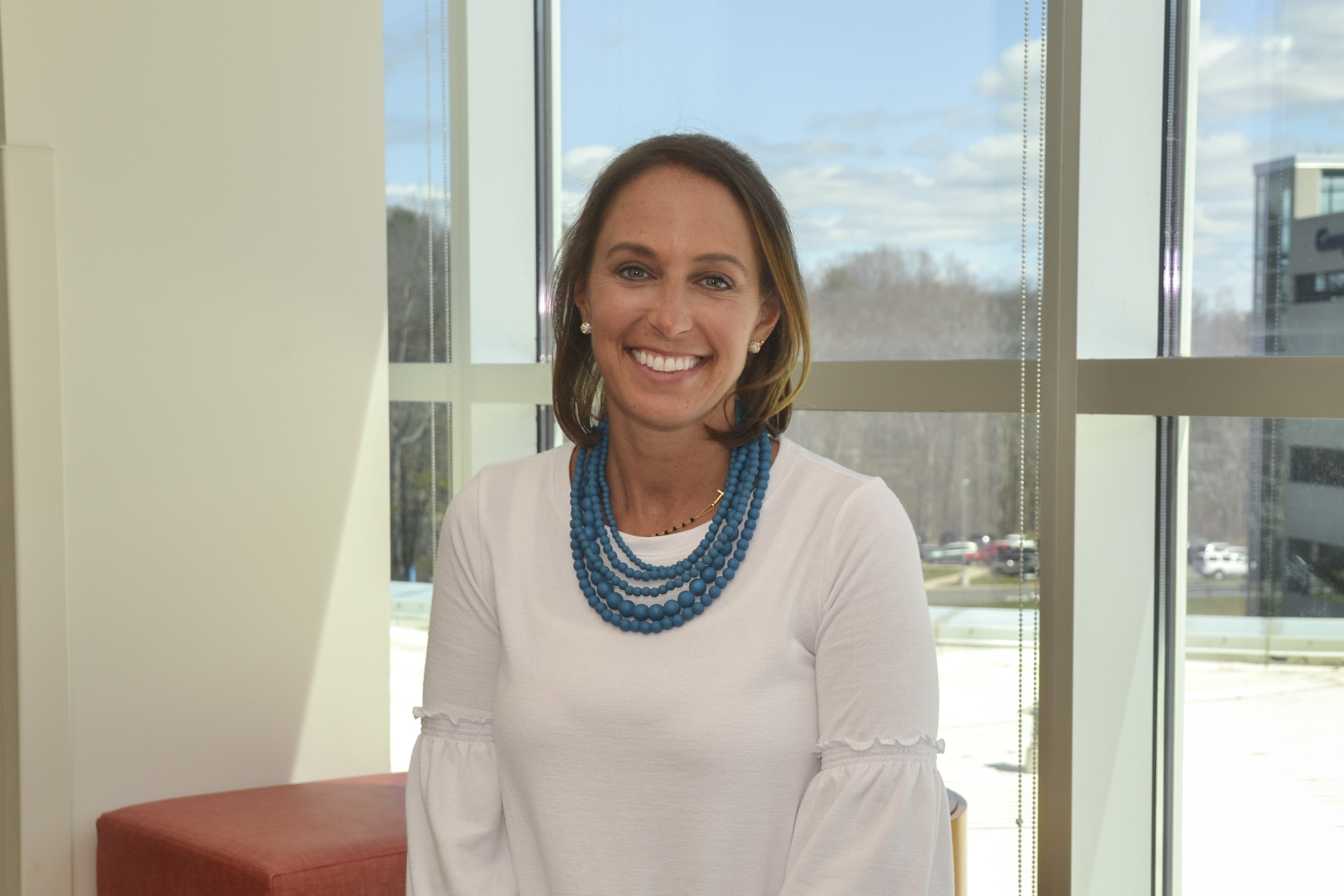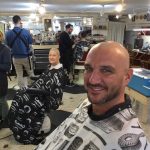At just 42 years old Marisa Dolce was faced with a surprising breast cancer diagnosis.
Her annual mammogram came back clear, but a chance follow-up ultrasound of her dense breast tissue revealed a cancerous lump.

“I couldn’t feel a lump at all. I am so glad I didn’t skip my annual breast cancer screening,” stresses Dolce, who was diagnosed this summer with Stage II invasive ductal carcinoma. After recovering from breast surgery, she was set to undergo chemotherapy and radiation at UConn Health.
But Dolce’s biggest fear as a young woman undergoing cancer treatment was losing her hair as a result of chemotherapy’s side-effects.
“My brother and sister’s mother-in-law even shaved their heads for me to go through the experience with me,” says Dolce. “But I really was hoping to keep my hair.”
Thankfully the doctors at UConn Health’s Carole and Ray Neag Comprehensive Cancer Center had a brand new optional tool called scalp-cooling therapy to offer Dolce to potentially keep her hair. Dolce was the first patient at UConn Health to receive the cooling therapy.
“I really wanted to try it,” recalls Dolce who used the cooling cap technology before and after her chemotherapy treatments.
To reduce Dolce’s chances of hair loss from her intravenous chemotherapy treatments, the computerized cooling cap system circulated cooled liquid through a tight-fitting silicone cap. The cooling therapy worked to limit her chemotherapy’s side effects by constricting the scalp’s blood vessels, which limits the drug’s reach to the hair follicles and also slows the rate of hair cell division.
“As I was leaving my first cooling cap treatment there was a huge rainbow in the sky right above UConn Health,” said Dolce. “I knew that was a good sign!”
The results?
“I thankfully kept 70 percent of my hair,” relieved Dolce said. “I did have some shedding from the chemo but still was able to keep the majority of my hair.”
She adds: “It really helped me feel better about myself while undergoing cancer care.”
Her only critique: “The cooling cap does get really chilly at 30 degrees,” said Dolce. “My scalp got temporarily numb during the cooling sessions. But I didn’t mind wearing the simple to use, air tight cap and it truly wasn’t bothersome.”

Dolce’s limited hair that she did shed is now growing back, and she’s also very glad her brother and other family member’s hair grew back too. But she is especially grateful for her entire family.
“I truly could not have beat cancer without the love and support of my family,” says Dolce. “I consider myself lucky.”
Dr. Susan Tannenbaum, Dolce’s oncologist couldn’t be happier to offer her breast cancer patients like Dolce the possibility of keeping their hair.
“Chemotherapy-induced temporary hair loss is one of the most common and stressful side effects breast cancer patients experience,” says Tannenbaum, chief of the Division of Oncology and Hematology at UConn Health. “Anything we can do to limit a woman’s distress while she undergoes breast cancer care is essential for the patient’s overall holistic health.”
UConn Health is the only Connecticut institution outside Fairfield County to offer the DigniCap, made by Dignitana Inc. Research studies have shown that the FDA-cleared technology is nearly 70 percent effective in reducing hair loss by at least half in breast cancer patients receiving chemotherapy.
The technology’s arrival was spearheaded by donations from UConn Health professors Dr. William B. White and Nancy M. Petry, Ph.D., of the Pat & Jim Calhoun Cardiology Center, among others, and grant funding awarded to the UConn Foundation by the CT Breast Health Initiative.
“After my wife’s chemotherapy treatment, I realized the emotional impact that hair loss can have on a woman,” said White. “We were pleased to learn of the potential for the Dignitana cold cap to preserve more than 50 percent of hair in about 70-75 percent of women getting chemotherapeutic regimens for breast cancer. Along with our initial donation to the program, it was very uplifting to have so many donors follow us in supporting the first cold cap program in northern Connecticut to benefit women undergoing cancer chemotherapy at UConn Health.”
The president of the Connecticut Breast Health Initiative is also proud of the wise decision her grants committee has made.
“The fact that 100 percent of our monies raised in Connecticut stays in Connecticut allows for such innovative and much needed projects to happen right in our own back yard,” said Joyce Bray, president of CTBHI. “The fact that the cold cap technology can give hope and lessen fears among survivors, adding to their overall well being, is phenomenal and rewarding to CTBHI, families and friends.”










